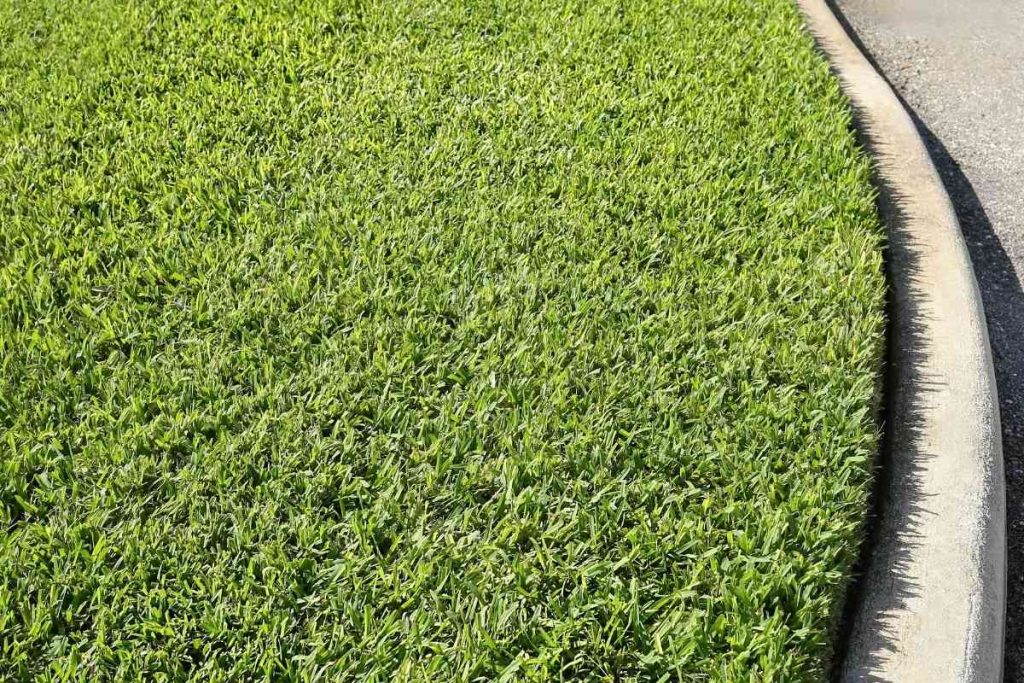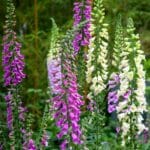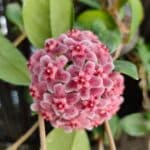Bermuda grass vs. St. Augustine grass are both excellent warm-season lawn grasses that you can use to add an aura of beauty to your lawn and landscapes.
You’d choose them if you live in a hot climate and want a fantastic lawn. Some people choose to seed or sod with only one of the turf grasses, while others blend the two. But what are the differences between Bermuda grass and St. Augustine grass?
One of their most notable differences is in their leaves. Bermuda grass has small flat leaves and large flat stems, whereas St. Augustine has enormous flat stems and broad, coarse leaves.
Table of Contents
What is Bermuda Grass?
Bermuda grass, wiregrass, and scutch grass are all names for Cynodon dactylon, a grass that may be found worldwide.
Europe, Africa, Australia, and much of Asia are all home to this species. It has made its way to the Americas. It is a common invasive species in Bermuda, even though it is not native to the island. It was dubbed “crabgrass” in Bermuda.
The blades are grey-green in color and have rough edges. They are usually 2–15 cm (0.79–5.91 in) long. The erect stems can reach a height of 1–30 cm (0.39–11.81 in). The stems are slightly flattened and often purple-tinged.
The seed heads appear as a cluster of two to six spikes at the top of the stem, each measuring 2–5 cm in length.
Bermuda Grass Identification
The coarse texture of Bermuda grass, as well as its invasive above-ground roots known as stolons, helps to identify it.
The leaf blade joins the leaf sheath; it also has tiny hairs. Its seed head, which resembles a bird’s foot, is its most distinctive feature.
What Is St. Augustine Grass?
Augustine grass (Stenotaphrum secundatum), often known as buffalo turf in Australia and buffalo grass in South Africa, is a tropical and subtropical lawn grass suitable for cultivation.
It’s a low-maintenance grass that grows into a thick, carpet-like sod that crowds out most weeds and other grasses.
Most Caribbean and Mediterranean areas have St. Augustine grass. Tropical climates are ideal for growing it. It’s common in lagoons and marshes, along shorelines, and everywhere there’s a lot of wetness.
St. Augustine Grass Identification

St. Augustine grass has broad, flat blades and is dark green in color. It creates a dense layer by spreading aboveground stolons, often known as “runners.”
Bermuda Grass Vs. St. Augustine (Key Differences)
| St. Augustine Grass | Bermuda Grass |
| Developing and thriving requires at least 5 hours of direct sunlight per day. | Bermuda grass grows best in broad sunlight throughout the day. Its growth will be slowed by a reduction in photosynthesis due to less sunshine. |
| St. Augustine grass is a fertilizer-hungry grass that needs to be fertilized every two months or every ten weeks using a slow-release nitrogen fertilizer. | It is recommended that you fertilize Bermuda grass that has been overseeded twice a year, in December and February. |
| Doesn’t do well in high-traffic areas. | Highly resistant to stress and foot traffic. |
Appearance
Like I mentioned earlier, Bermuda grass has small flat leaves and large flat stems, whereas St. Augustine has enormous flat stems and broad, coarse leaves.
The spikelets, which are borne in 4 or 5 slender spikes at the terminals of the erect stems, are used to identify Bermuda grass.
Weed Tolerance
Weed tolerance is high in both St. Augustine and Bermuda grass. They spread quickly and make a dense, complete lawn.
As a result, they can crowd out and destroy weeds on their own, reducing the need for lawn weed treatments.
Frequently Asked Questions
How do I know if I have Bermuda or St. Augustine grass?
Bermuda grass is drought-resistant and can withstand hot weather without water in the summer, whereas St. Augustine grass needs a lot of water to thrive. Another significant distinction is that St. Augustine is shade-tolerant, whereas Bermuda grass does not thrive in shady regions.
Is St. Augustine grass better than Bermuda grass?
The majority of lawn owners prefer Bermuda grass to St. Augustine grass mainly because of its cool-hardiness and durability.
Is it okay to plant Bermuda grass and St. Augustine together?
Bermuda blends well with St. Augustine because it rapidly fills gaps in the lawn that would take longer to reach with all sod. Planting Bermuda grass seed is less expensive, and it spreads swiftly across your lawn.
Is St. Augustine more aggressive than Bermuda?
Stolons grow across the ground, filling in bare patches of soil, while rhizomes grow underneath the ground establishing root systems that spring up new leaves. This growth pattern makes Bermuda a more aggressive sod grass than St. Augustine in most climates, which is why it is commonly used in sports applications.
How do I substitute Bermuda for St. Augustine?
Spray glyphosate (Roundup is one brand) on the existing St. Augustine and wait a week for it to totally destroy the turf and any weeds. Then softly rototill the area and seed it with Bermuda grass. Water well after seeding, and keep the soil moist until the Bermuda plants are established and growing well.
What grass will take over Bermuda?
Bermuda is planted on purpose in some climates in order to create a way for St. Augustine. St. Augustine will readily choke out Bermuda in these conditions and produce a full, thick lawn.
Is Bermuda grass a good lawn grass?
Bermuda grass is prized for its heat and drought resistance, as well as its ability to survive severe use and recover fast. Many lawn owners in the United States rely on Bermuda grass for its durability due to this combination of characteristics.
What’s the softest grass?
According to many landscaping experts and homeowners, the softest grass to tread on is hybrid emerald zoysia grass. It’s dense grass with a slender blade that feels amazing underfoot.
Conclusion
Although St. Augustine is stronger in some regions than Bermuda grass, Bermuda grass also has stronger qualities in some areas than St. Augustine.
As previously said, this article compares and contrasts the characteristics of St. Augustine and Bermuda grass in a broad sense. Because they were bred at different eras with different aims in mind, each cultivar of St. Augustine and Bermuda grass behaves differently.
Recommended Posts:
- Bermuda Grass Vs Fescue
- Bermuda Grass Vs Zoysia
- Zoysia Grass Vs Fescue
- Will Grass Grow Back After Dog Urine?




